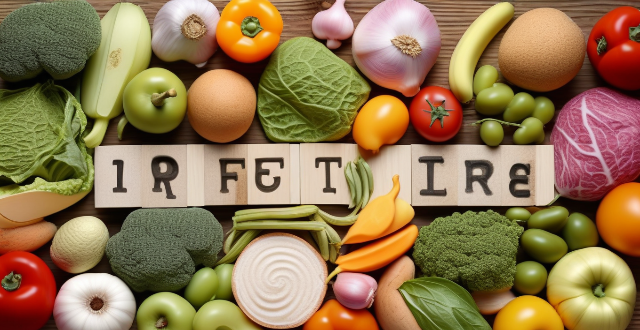Ensuring a diet rich in all essential nutrients is vital for health. Tips include eating a variety of foods from different groups like fruits, vegetables, whole grains, and protein sources. Focus on nutrient-dense foods and limit processed and junk foods. Consider supplements if needed, but primarily aim to get nutrients from food. A balanced and varied diet promotes overall well-being.

How to Ensure Your Diet Includes All Essential Nutrients
Ensuring that your diet includes all essential nutrients is crucial for maintaining good health and preventing nutrient deficiencies. Here are some tips on how to achieve a balanced and nutritious diet:
1. Eat a Variety of Foods
Eating a variety of foods from different food groups can help you get all the essential nutrients your body needs. This includes:
- Fruits and vegetables: Aim for at least five servings of fruits and vegetables per day, choosing a variety of colors to ensure a range of vitamins and minerals.
- Whole grains: Choose whole grain bread, pasta, and cereals instead of refined grains to increase fiber and nutrient intake.
- Protein sources: Include lean meats, poultry, fish, beans, lentils, and nuts in your diet to get adequate protein and other important nutrients like iron and zinc.
- Dairy products: Consume low-fat or fat-free dairy products like milk, yogurt, and cheese to get calcium and vitamin D.
2. Focus on Nutrient-Dense Foods
Nutrient-dense foods provide a lot of nutrients for relatively few calories. These include:
- Leafy greens: Spinach, kale, and collard greens are rich in vitamins A, C, K, and calcium.
- Berries: Blueberries, strawberries, and raspberries are high in antioxidants and vitamin C.
- Nuts and seeds: Almonds, chia seeds, and flaxseeds are good sources of healthy fats, fiber, and various vitamins and minerals.
3. Limit Processed and Junk Foods
Processed and junk foods often contain added sugars, unhealthy fats, and sodium, which can lead to nutrient deficiencies and health problems. To limit these foods, try:
- Reading labels: Check the nutrition facts panel and ingredients list before purchasing packaged foods.
- Cooking at home: Preparing meals at home allows you to control the ingredients and avoid unnecessary additives.
- Choosing whole foods: Opt for fresh fruits, vegetables, whole grains, and lean proteins instead of processed snacks and fast food.
4. Consider Taking Supplements (If Needed)
While it's best to get most of your nutrients from food, sometimes supplements may be necessary to fill any gaps in your diet. Talk to your healthcare provider about whether you need any supplements, such as:
- Vitamin D: If you don't get enough sun exposure or live in a northern climate, you may need a vitamin D supplement.
- Iron: Women who experience heavy menstrual periods or are pregnant may need additional iron.
- Omega-3 fatty acids: If you don't eat fish regularly, an omega-3 supplement may be beneficial for heart health.
Remember, a balanced and varied diet is key to ensuring that you get all the essential nutrients your body needs. By following these tips, you can improve your overall health and well-being.